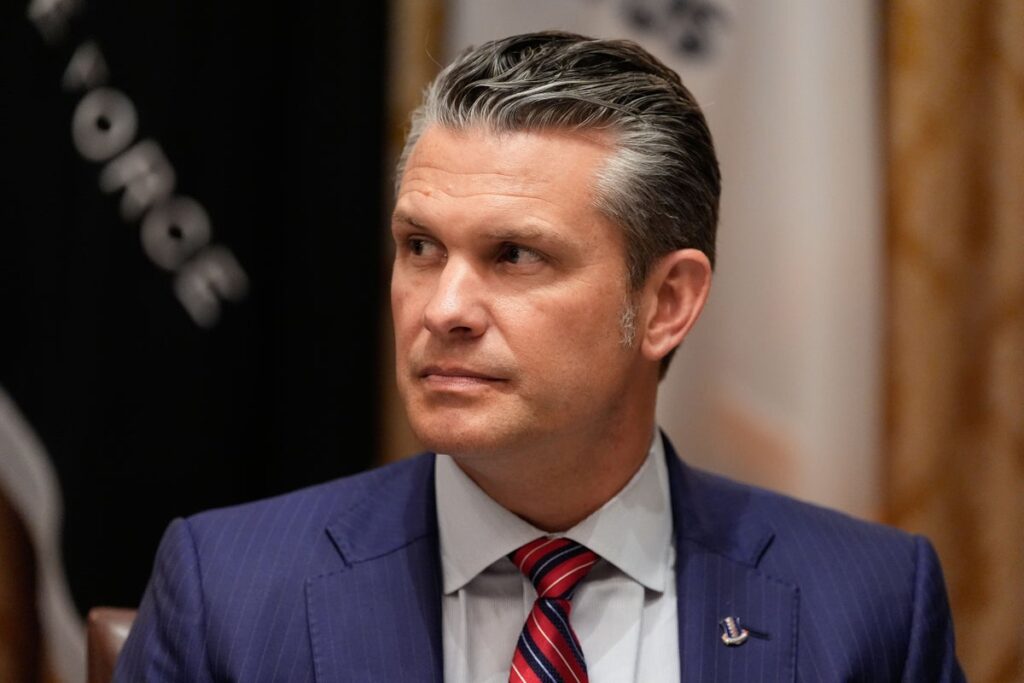
After a sweeping rejection of the Pentagon’s new press policy, only 15 journalists remain with credentials to cover the Department of Defense. This dramatic reduction follows a mass walkout by veteran reporters who opposed the restrictive measures imposed by Defense Secretary Pete Hegseth. The remaining journalists are a mix of freelancers, foreign media representatives, and staff from right-wing outlets.
On Wednesday, dozens of print and broadcast journalists vacated the Pentagon in protest. The exodus included reporters from nearly every major American news organization, such as Fox News and Newsmax, both known for their conservative leanings. The walkout was sparked by Hegseth’s 21-page policy, which demanded that reporters refrain from soliciting any information from government employees without prior Pentagon authorization.
Press Freedom Under Threat
The Pentagon Press Association, representing around 100 journalists, harshly criticized the new policy, describing it as an “unprecedented message of intimidation.” The association urged the Defense Department to reconsider its stance, arguing that the policy undermines press freedom and the public’s right to information.
“Our members did nothing to create this disturbing situation. It arises from an entirely one-sided move by Pentagon officials apparently intent upon cutting the American public off from information they do not control and pre-approve,” the association stated.
Despite the backlash, the Pentagon remained firm on its policy. By Thursday, an internal document revealed that only 15 journalists had signed the new press pledge. Among them were representatives from One America News, The Federalist, and The Epoch Times, along with freelancers for various foreign outlets.
Who Remains in the Pentagon?
The journalists who accepted the new terms include two from One America News, one from The Federalist, and another from The Epoch Times. The rest are freelancers and reporters for foreign-based organizations, such as the Turkish newspaper Akşam and the Turkish state-run Anadolu Agency. Other signatories include a reporter for The Australian, an Afghan freelancer, and contributors to lesser-known outlets like AWPS News and the India Globe.
Two members of the Jordanian TV network Al Taghier also signed an earlier version of the policy, which was later revised. This diverse group of remaining journalists highlights the significant shift in the Pentagon press corps’ composition.
Reactions and Implications
Prior to the mass departure, only One America News publicly agreed to the restrictive pledge. Charles Herring, the network’s president, stated that their legal team had thoroughly reviewed the policy. Meanwhile, Kristina Anderson of AWPS News expressed her dismay at the situation, describing a “profound sense of loss” as she navigated the Pentagon’s press spaces.
The Federalist’s leadership, including CEO Sean Davis and editor-in-chief Mollie Hemingway, defended their decision to sign the pledge. They criticized the broader media landscape for rejecting the policy, accusing them of hypocrisy regarding press freedom issues.
“Where were these self-styled First Amendment defenders when we were illegally censored and targeted for debunking Deep State lies and hoaxes?” they questioned in a statement. “NBC News, for example, colluded with Big Tech to demonetize and deplatform us for criticizing the government and the corrupt corporate news media.”
The Road Ahead
As the Pentagon’s media landscape undergoes a transformation, the implications for press freedom and national security coverage are profound. News organizations like Fox News and Newsmax have joined others in rejecting the policy, citing concerns over journalistic independence and the ability to inform the public on critical issues.
With both Secretary Hegseth and President Donald Trump maintaining their stance on the policy, Pentagon spokesperson Sean Parnell took to social media to mock the departing journalists, suggesting they “will not be missed.” He hinted at forthcoming announcements about the future of the Pentagon press corps, leaving the door open for further developments.
As the situation unfolds, the tension between the Pentagon and the press underscores the ongoing debate over media access and government transparency. The next steps will be closely watched by advocates of press freedom and those concerned about the implications of such restrictive measures.





